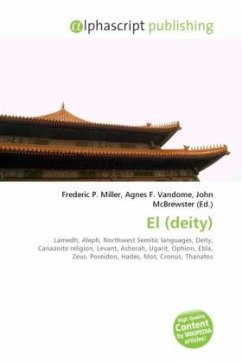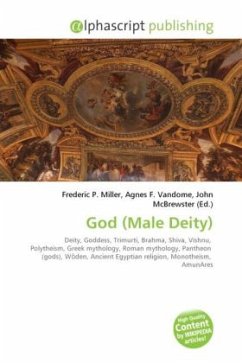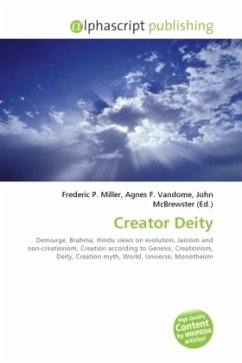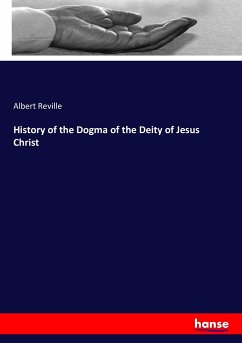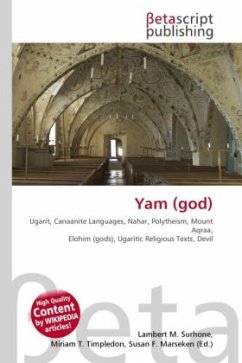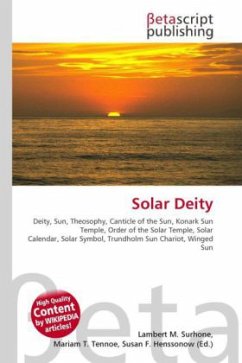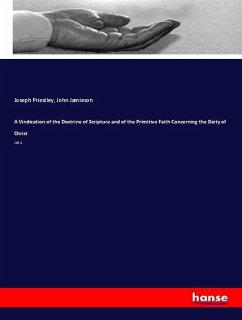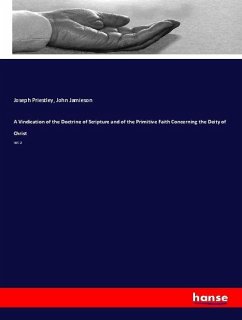l is the Northwest Semitic word for "deity", cognate to Arabic il h and Akkadian ilum.In the Canaanite religion, or Levantine religion as a whole, Eli or Il was the supreme god, the father of humankind and all creatures and the husband of the Goddess Asherah as attested in the tablets of Ugarit.The word El was found at the top of a list of gods as the Ancient of Gods or the Father of all Gods, in the ruins of the Royal Library of the Ebla civilization, in the archaeological site of Tell Mardikh in Syria dated to 2300 BC. He may have been a desert god at some point, as the myths say that he had two wives and built a sanctuary with them and his new children in the desert. El had fathered many gods, but most important were Hadad, Yam and Mot, each of whom has similar attributes to the Greek gods Zeus, Poseidon or Ophion and Hades or Thanatos respectively. Ancient Greek mythographers identified El with Cronus.
Bitte wählen Sie Ihr Anliegen aus.
Rechnungen
Retourenschein anfordern
Bestellstatus
Storno

